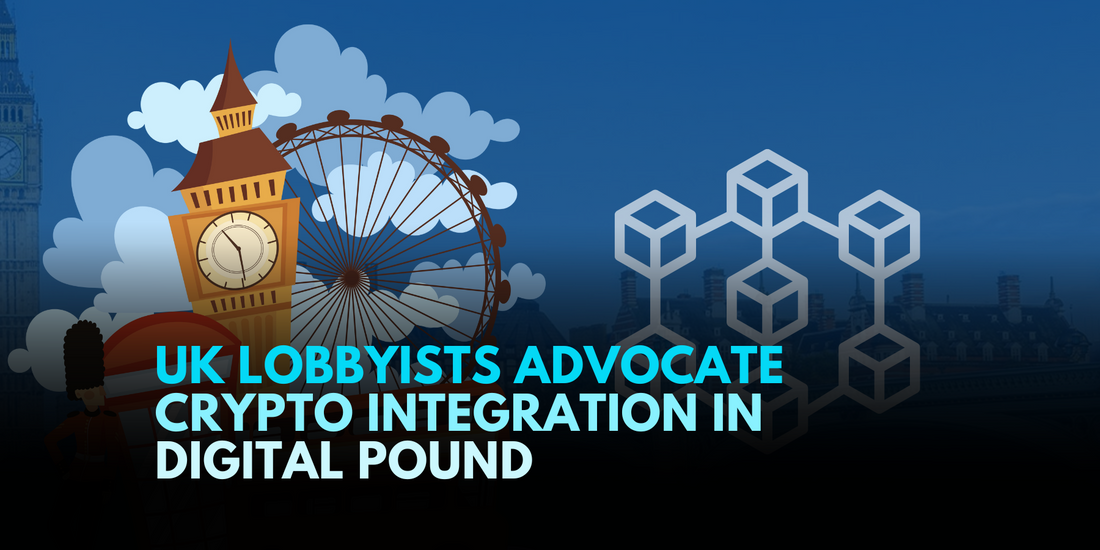
Crypto Integration Crucial for Future-Ready Digital Pound, UK Lobbyists Assert
The United Kingdom's plans for a digital pound have received a generally positive response from lobby groups and crypto companies. However, some stakeholders believe that for the currency to be truly future-ready, it should be interoperable with cryptocurrencies.
In February, as the European Union (EU) advanced its plans for a digital euro, the UK opened its proposal for a digital pound to public comment. The government's proposed approach involves a "platform model," where the Bank of England (BoE) would provide infrastructure for a central bank digital currency (CBDC), allowing private companies to integrate and offer wallets that connect to other services.
The potential benefits of a digital pound are numerous, as highlighted by Lisa Cameron, the chair of the crypto and digital assets All Party Parliamentary Group. Cameron stated, "A digital pound could bring a number of opportunities from potentially enhancing and improving our existing payment systems; providing an alternative to other forms of payment; and potentially spur further innovation across the sector."
As responses to the government's plans pour in ahead of the June 30 consultation deadline, concerns and suggestions from crypto industry stakeholders have emerged. Preserving user privacy and ensuring an innovation-friendly design for the digital pound are key areas of focus. Some stakeholders have raised concerns about the BoE's proposed limits on digital pound holdings, suggesting that they may be insufficient.
The BoE has proposed a limit of 10,000 to 20,000 digital pounds per individual during the introductory period of the CBDC. The International Regulatory Strategy Group (IRSG) has called for a lower limit, citing concerns about potential bank runs. In contrast, the EU plans to impose stricter caps on digital euro holdings while blocking programmability.
Regarding programmability, Kene Ezeji-Okoye, co-founder of U.K.-based blockchain infrastructure provider Millicent, noted that the open infrastructure of the proposed digital pound could enable automatic transfers through smart contracts if permitted by the government. Smart contracts would be accessible via an application program interface (API) layer, facilitating connections with the CBDC.
Offline payments have also been a topic of discussion. While the digital pound system might enable such transactions, the BoE working paper acknowledged the complexities that could impact system security and performance. Lobby group CryptoUK emphasized the importance of prioritizing offline payments to ensure consistent access to funds.
Moreover, stakeholders believe that true innovation and future-proofing of the digital pound can be achieved through integration with cryptocurrencies. Varun Paul, director for CBDC at institutional crypto custody platform Fireblocks, expressed that a digital pound would be more innovative if it worked with crypto. The digital pound's interoperability with cash and bank deposits is already stated in the working paper, but crypto integration would enhance its usability.
Privacy protection is another crucial aspect. Stakeholders have urged the government to approach privacy concerns with caution. The government's proposal to anonymize payment messages instructing transfers on the core ledger has garnered support from some stakeholders. However, others believe that even anonymized transactions and wallet balances should not be visible to the central bank, citing potential risks of data interpretation and abuse.
While a final decision on the digital pound is not expected until at least 2025, ensuring public understanding and trust will be vital to its success, according to Lisa Cameron. As the consultation period progresses, it is clear that stakeholders are actively engaged in shaping the future of the digital pound, advocating for interoperability with cryptocurrencies and robust privacy measures to create a currency that is ready for the future.
